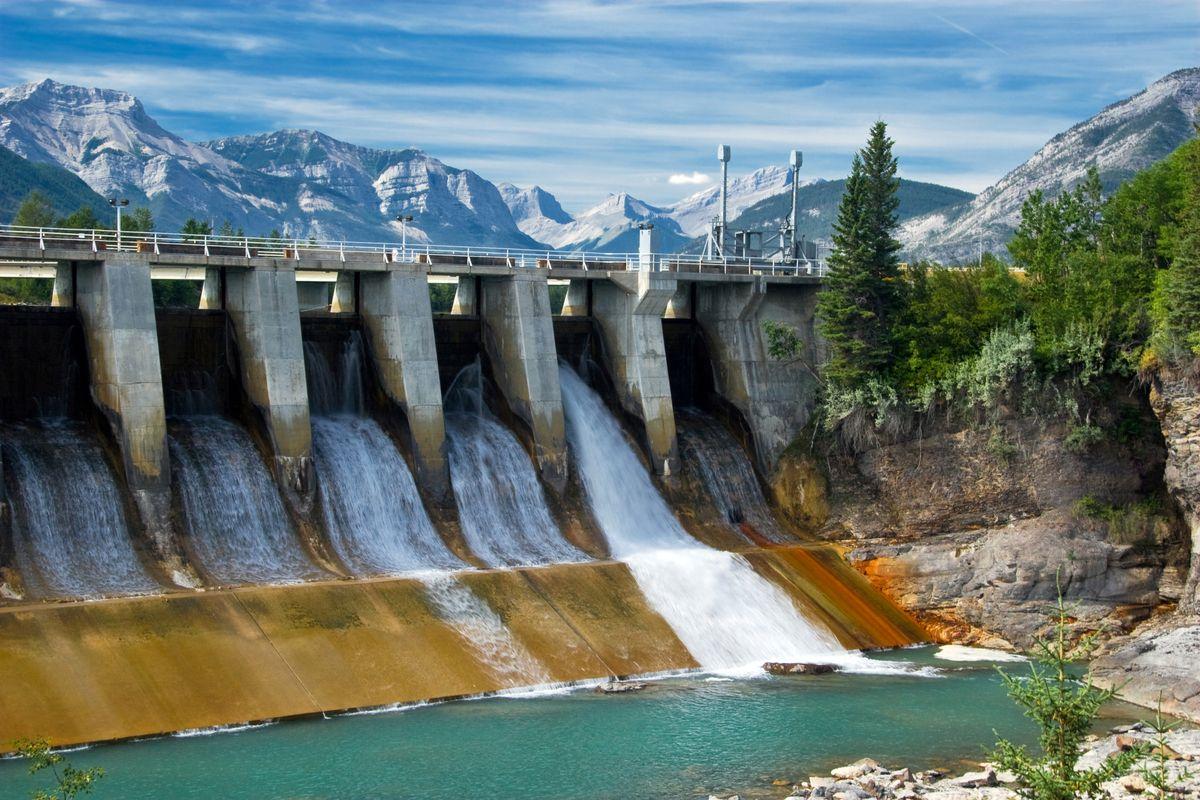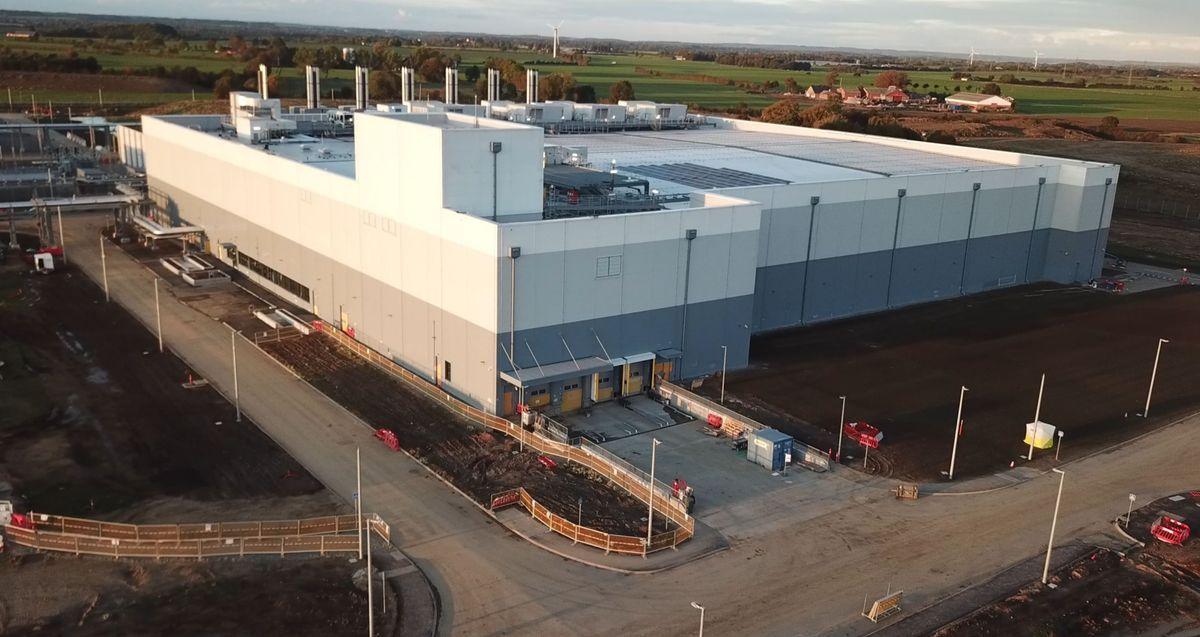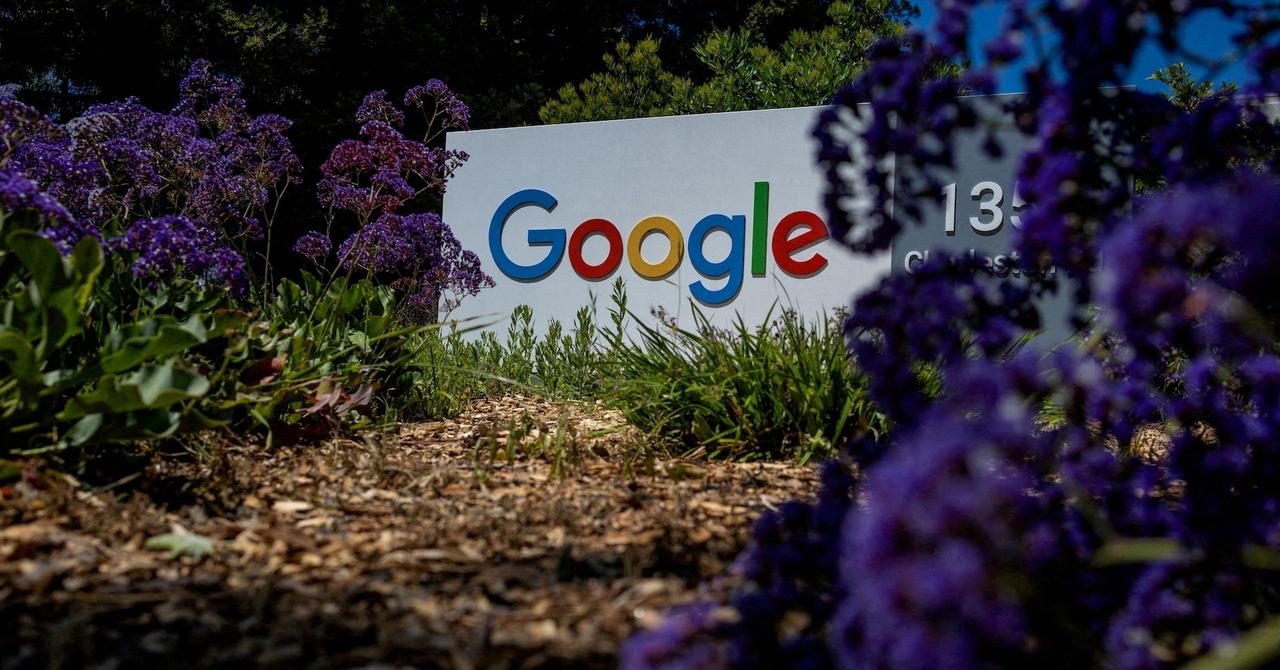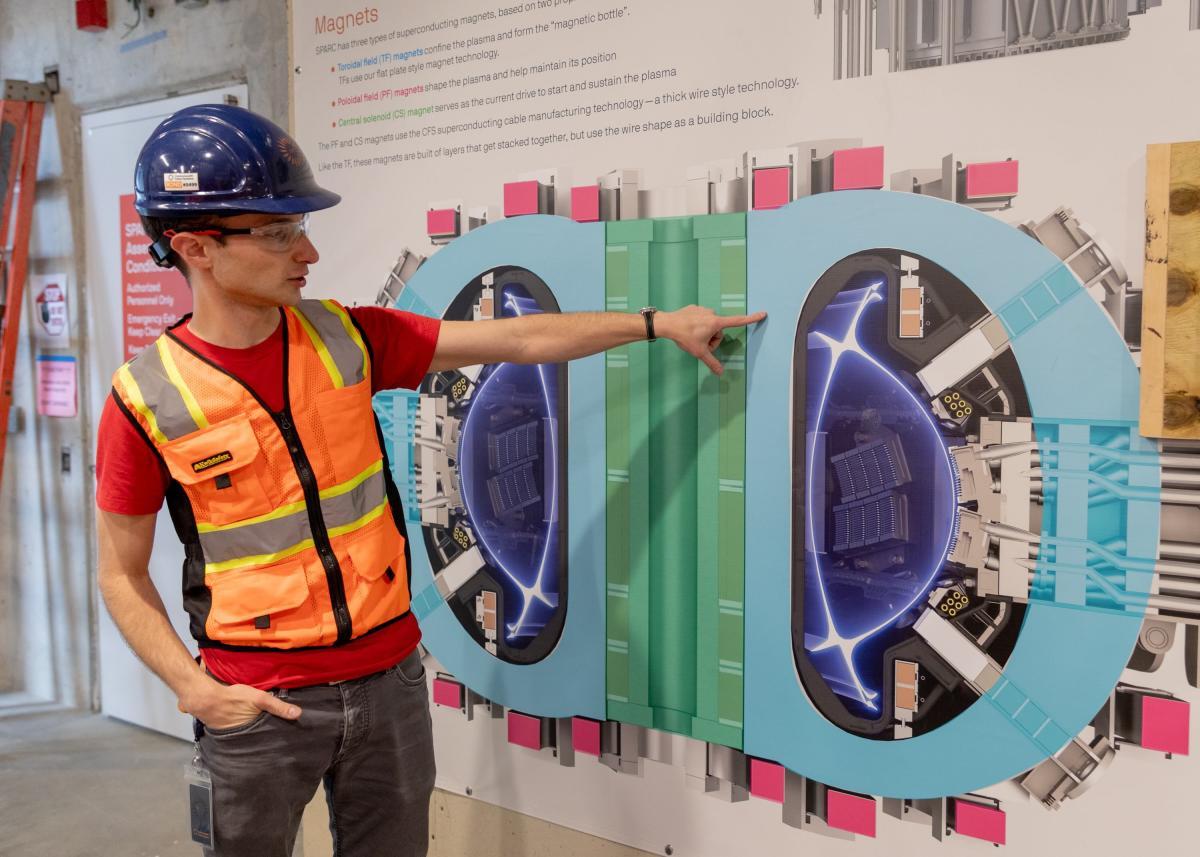Google's $3 Billion Hydropower Deal: Powering AI and Data Centers with Clean Energy
6 Sources
6 Sources
[1]
Google inks $3 billion US hydropower deal in largest clean energy agreement of its kind
NEW YORK, July 15 (Reuters) - Google has agreed to secure as much as 3 gigawatts of U.S. hydropower in the world's largest corporate clean power pact for hydroelectricity, the company said on Tuesday, as Big Tech pursues the expansion of energy-hungry data centers. The deal between Google and Brookfield Asset Management (BAM.TO), opens new tab includes initial 20-year power purchase agreements, totaling $3 billion, for electricity generated from two hydropower facilities in Pennsylvania. The technology industry is intensifying the hunt for massive amounts of clean electricity to power data centers needed for artificial intelligence and cloud computing, which has driven U.S. power consumption to record highs after nearly two decades of stagnation. Ruth Porat, president and chief investment officer at Google parent company Alphabet, is expected to discuss the news at an AI summit in Pittsburgh. U.S. President Donald Trump is scheduled to attend the event, where $70 billion in AI and energy investments are expected to be announced. "This collaboration with Brookfield is a significant step forward, ensuring clean energy supply in the PJM region where we operate," Amanda Peterson Corio, Google's head of data center energy, said in a statement. Over roughly the last year, Google has struck several first-of-a-kind power purchase agreements, including for carbon-free geothermal energy and advanced nuclear. The company is also working with the country's largest electricity grid operator, PJM Interconnection, to use AI to speed up the process of hooking up new power supplies to the grid. In the latest deal, Google said it has signed an initial framework agreement with Brookfield, owner of Brookfield Renewable Partners (BEP.N), opens new tab, which develops and operates renewable energy plants. Its two hydropower sites in Pennsylvania will be upgraded and relicensed as part of the arrangement, the companies said. Google said it plans to expand the deal eventually beyond those sites to other parts of the Mid-Atlantic and Midwest. Reporting by Laila Kearney; Editing by Sonali Paul Our Standards: The Thomson Reuters Trust Principles., opens new tab
[2]
Google spends £3 billion on securing energy for its data centers and AI expansion
A new deal with Brookfield Asset Management will yield the company 3,000 megawatts of hydroelectric power. Google has closed a $3 billion deal to , as it looks to meet the data demands of its growing AI and cloud computing platforms by harnessing low-cost clean energy. Brookfield Asset Management's renewables division says that its deal with Google is the largest deal of its kind for hydroelectricity. The first phase of this deal will provide Google with 670MW of carbon-free electricity from Brookfield's Holtwood and Safe Harbor plants in Pennsylvania. The Hydro Framework Agreement (HFA) allows Google to upgrade or develop the existing facilities as it sees fit in an ongoing commitment to adding more power to the grid. At the outset, Google's efforts will largely be focused on the PJM, the largest grid in the US with 65 million customers, which is to keep up with the data demands of big tech's seemingly insatiably power-hungry AI projects. In time, the new partners will have the option of expanding into other regions in the country. Google said in a statement that it was dedicated to "responsibly growing the digital infrastructure that powers daily life for people, communities and businesses." Google's latest energy deal comes in the same week that AI rival Meta said it hundreds of billions of dollars on a number of gigwatt-sized data centers, as part of its quest to create better-than-human-level "superintelligence" in all of its AI domains. The new campuses will be among the largest on earth, with the first to arrive being the Ohio-based Prometheus at some point next year. A typical data center consumes around 500,000 gallons of water each day, but the emerging AI-focused complexes being built by tech giants could reportedly push this figure into the millions, as recently reported by . When the volume of water needed to power these facilities eclipses what is readily available, local communities often bear the brunt through rising prices and potential water shortages in the future.
[3]
Google is spending $3bn on renewable power for its data centers
Google data center energy consumption is up 27%, emissions are down 12% Google has agreed to spend at least $3 billion as part of an agreement to boost its renewable energy portfolio as demands increase in line with demand for artificial intelligence and cloud computing. The deal with Brookfield Renewable Energy Partners includes 20-year power purchase agreements for 670 megawatts of clean energy via two Pennsylvania hydroelectric plants at Holtwood and Safe Harbor. Although Google has been bidding big on renewable energy in recent years, this marks the world's largest corporate clean power deal for hydroelectricity. Already a considerable starting point, Brookfield noted the Hydro Framework Agreement will support the provision of up to 3,000 megawatts of carbon-free hydroelectric capacity across the United States. The move aligns with Google's efforts to power its data centers with carbon-free energy around the clock, and comes during an era of increased green energy investments. Hyperscaler rivals like Amazon, Meta, and Microsoft have also been splurging on nuclear, gas and renewables to meet demand. "Hydropower is a proven, low-cost technology, offering dependable, homegrown, carbon-free electricity that creates jobs and builds a stronger grid for all," Google Head of Data Center Energy Amanda Peterson Corio explained. Brookfield Asset Management President Connor Teskey welcomed the investment, noting that hyperscalers will need to diversify their energy production to meet demand at scale. Although surges in AI and cloud computing have resulted in higher demand for data centers, Google's most recent 2025 sustainability report revealed how the company managed to cut data center emissions by 12% despite a 27% rise in energy consumption. In its most recent full year, the company procured more than eight gigawatts of clean energy. Energy efficiency improvements to its AI systems, including power-hungry GPUs, have also resulted in a reduction in water consumption, typically used for cooling. However, having only replenished 64% of the water it used in 2025, there's still clearly a long way to go.
[4]
Google inks $3bn US hydropower deal in largest clean energy agreement of its kind
The tech giant will buy 3GW of US hydropower in deal to fuel AI and data center growth across eastern states Google has agreed to secure as much as 3GW of US hydropower in the world's largest corporate clean power pact for hydroelectricity, the company said on Tuesday, as Big Tech pursues the expansion of energy-hungry data centers. The deal between Google and Brookfield Asset Management includes initial 20-year power purchase agreements, totaling $3b, for electricity generated from two hydropower facilities in Pennsylvania. The tech giant will also invest $25bn in data centers across Pennsylvania and neighboring states over the next two years, Semafor reported on Tuesday. The technology industry is intensifying the hunt for massive amounts of clean electricity to power data centers needed for artificial intelligence and cloud computing, which has driven US power consumption to record highs after nearly two decades of stagnation. Ruth Porat, president and chief investment officer at Google parent company Alphabet, discussed the news at an AI summit in Pittsburgh. Donald Trump announced $70bn in AI and energy investments there. "This collaboration with Brookfield is a significant step forward, ensuring clean energy supply in the PJM region where we operate," Amanda Peterson Corio, Google's head of data center energy, said in a statement. Over roughly the last year, Google has struck several first-of-a-kind power purchase agreements, including for carbon-free geothermal energy and advanced nuclear. The company is also working with the country's largest electricity grid operator, PJM Interconnection, to use AI to speed up the process of hooking up new power supplies to the grid. Google said it has signed an initial framework agreement with Brookfield, owner of Brookfield Renewable Partners, which develops and operates renewable energy plants. Its two hydropower sites in Pennsylvania will be upgraded and relicensed as part of the arrangement, the companies said. Google said it plans to expand the deal eventually beyond those sites to other parts of the mid-Atlantic and midwest.
[5]
Google Is Spending Billions to Plug Into This Underrated Power Source | The Motley Fool
Technology companies like Alphabet's Google have distinct energy needs. Their data centers require a steady stream of power 24/7. Meanwhile, Google, like many other large tech companies, has pledged to operate solely on carbon-free energy. In Google's case, it aims to achieve that ambitious goal by 2030. Given the intermittency of renewable energy sources (the sun sets; the wind isn't constant), the company needs to ensure it has an adequate supply of reliable, carbon-free energy to achieve its goals. That's leading the tech titan to turn to hydropower to help supply some of its power needs. The underrated electricity source can provide it with the baseload 24/7 power it needs from a carbon-free source. Google inked a first-of-its-kind hydro framework agreement with Brookfield, which will provide up to 3 gigawatts of carbon-free hydroelectric capacity in the U.S. to the technology company. That's the world's largest corporate clean power deal for hydroelectricity. Under the agreement, Brookfield will initially provide Google with all the power from its Hollywood and Safe Harbor hydro facilities in Pennsylvania. The 20-year PPAs cover 670 megawatts of capacity, representing more than $3 billion of power. Under the agreement, Google can secure up to 3 GW of carbon-free electricity from Brookfield as it becomes available in the future. The company can obtain this additional capacity as existing PPAs on Brookfield's hydro assets expire. Brookfield could also overhaul or upgrade its existing assets to provide more clean power to the grid, supported by Google's PPAs. The deal is a crucial step in ensuring that Google has the clean and reliable power it needs to support its data center operations and environmental goals. The deal with Google is also significant for Brookfield, which is one of the world's largest hydroelectric power operators. The framework deal with Google does two things for the company. It increases its cash flow and provides the company with opportunities to unlock the value of its U.S. hydro assets. Brookfield has a vast portfolio of legacy clean power generating assets secured by long-term PPAs. These agreements provide the company with stable and growing cash flows, as most of its PPAs index power rates to inflation. However, due to surging power demand, electricity prices are rising faster than inflation. That's providing Brookfield with the opportunity to lock in higher prices as legacy PPAs expire. At its investor day last fall, Brookfield highlighted that it had about 3 GW of hydroelectric capacity on PPAs that expire over the next five years. It now has a likely buyer for all this power under its framework agreement with Google. The company estimated that securing new PPAs for its hydro generation capacity alone could add up to $100 million annually to its funds from operations (FFO), or about 2% per share each year. That's in addition to inflation-driven rate increases, which should add another 2% to 3% to its annual FFO per share. The company noted that locking in higher pricing on future PPAs would increase the underlying value of its hydroelectric assets. That would enable Brookfield to layer in additional financing on those facilities, which it could use to fund new investments such as development projects and acquisitions. The company estimated that it could unlock over $3 billion in additional proceeds from financing its legacy U.S. hydro assets over the next five years as it recontacted those facilities. The Google deal puts it in a strong position to achieve this target. Securing new financing and deploying the proceeds into new investments could further enhance Brookfield's FFO growth rate. This agreement helps support the company's outlook that it can deliver more than 10% annual FFO per-share growth over the next decade. Google needs more clean power to support its cloud and AI businesses. It's turning to hydropower supplied by Brookfield to meet some of that need. That deal will also be a boon for Brookfield, enabling it to sell most of its available capacity to a strong customer for the next two decades. That will lock in earnings growth while also positioning the company to unlock the value of its hydro assets via refinancing. It can use those proceeds to support the continued expansion of its global clean power portfolio.
[6]
Google inks US$3 billion hydropower deal in largest clean energy agreement of its kind
Google has agreed to secure as much as 3 gigawatts of U.S. hydropower in the world's largest corporate clean power pact for hydroelectricity, the company said on Tuesday, as Big Tech pursues the expansion of energy-hungry data centres. The deal between Google and Brookfield Asset Management includes initial 20-year power purchase agreements, totaling US$3 billion, for electricity generated from two hydropower facilities in Pennsylvania. The tech giant will also invest $25 billion in data centres across Pennsylvania and neighbouring states over the next two years, Semafor reported on Tuesday. The technology industry is intensifying the hunt for massive amounts of clean electricity to power data centres needed for artificial intelligence and cloud computing, which has driven U.S. power consumption to record highs after nearly two decades of stagnation. Ruth Porat, president and chief investment officer at Google parent company Alphabet, is expected to discuss the news at an AI summit in Pittsburgh. U.S. President Donald Trump is scheduled to attend the event, where $70 billion in AI and energy investments are expected to be announced. "This collaboration with Brookfield is a significant step forward, ensuring clean energy supply in the PJM region where we operate," Amanda Peterson Corio, Google's head of data centre energy, said in a statement. Over roughly the last year, Google has struck several first-of-a-kind power purchase agreements, including for carbon-free geothermal energy and advanced nuclear. The company is also working with the country's largest electricity grid operator, PJM Interconnection, to use AI to speed up the process of hooking up new power supplies to the grid. In the latest deal, Google said it has signed an initial framework agreement with Brookfield, owner of Brookfield Renewable Partners, which develops and operates renewable energy plants. Its two hydropower sites in Pennsylvania will be upgraded and relicensed as part of the arrangement, the companies said. Google said it plans to expand the deal eventually beyond those sites to other parts of the Mid-Atlantic and Midwest.
Share
Share
Copy Link
Google has signed a $3 billion deal with Brookfield Asset Management for up to 3 gigawatts of hydroelectric power, marking the largest corporate clean energy agreement of its kind. This move aims to support the growing energy demands of AI and cloud computing while advancing Google's carbon-free energy goals.
Google's Groundbreaking Hydropower Deal
In a significant move towards sustainable energy, Google has inked a $3 billion deal with Brookfield Asset Management to secure up to 3 gigawatts of hydroelectric power in the United States
1
2
. This agreement, announced on Tuesday, marks the world's largest corporate clean power pact for hydroelectricity, underscoring the tech giant's commitment to powering its expanding data centers and AI operations with renewable energy1
4
.
Source: Motley Fool
The Deal Specifics
The initial phase of the agreement includes 20-year power purchase agreements (PPAs) totaling $3 billion for electricity generated from two hydropower facilities in Pennsylvania - Holtwood and Safe Harbor
1
2
. These facilities will provide Google with 670 megawatts of carbon-free electricity to start2
. The deal also includes a Hydro Framework Agreement (HFA) that allows Google to upgrade or develop existing facilities, with the potential to expand into other regions in the country2
4
.Driving Factors: AI and Cloud Computing
The technology industry's hunt for massive amounts of clean electricity has intensified, driven by the power demands of artificial intelligence and cloud computing
1
. These advancements have pushed U.S. power consumption to record highs after nearly two decades of stagnation1
. Google's move reflects this trend, with the company planning to invest $25 billion in data centers across Pennsylvania and neighboring states over the next two years4
.
Source: TechRadar
Google's Clean Energy Strategy
This deal aligns with Google's ambitious goal to operate solely on carbon-free energy by 2030
5
. Over the past year, Google has struck several first-of-a-kind power purchase agreements, including for carbon-free geothermal energy and advanced nuclear1
. The company is also collaborating with PJM Interconnection, the country's largest electricity grid operator, to use AI in speeding up the process of connecting new power supplies to the grid1
4
.Impact on Brookfield Renewable Energy Partners
For Brookfield, this deal represents a significant opportunity. It not only increases the company's cash flow but also provides opportunities to unlock the value of its U.S. hydro assets
5
. Brookfield estimates that securing new PPAs for its hydro generation capacity could add up to $100 million annually to its funds from operations (FFO)5
.Related Stories
Environmental Implications
Despite the surge in energy consumption due to AI and cloud computing, Google's 2025 sustainability report revealed a 12% cut in data center emissions, even with a 27% rise in energy consumption
3
. However, challenges remain, as the company only replenished 64% of the water it used in 20253
.Future Outlook

Source: Reuters
This deal sets a precedent for large-scale corporate investment in renewable energy. As tech giants like Amazon, Meta, and Microsoft also increase their investments in nuclear, gas, and renewables to meet demand
3
, it's clear that the intersection of technology and sustainable energy will continue to shape the future of both industries.References
Summarized by
Navi
Related Stories
Google's $800M Clean Energy Initiative: Powering AI-Driven Data Centers with Renewable Sources
11 Dec 2024•Business and Economy

Google and Meta Lead Massive AI Infrastructure Investments in the US
15 Jul 2025•Business and Economy

Google Partners with Elementl Power to Develop Advanced Nuclear Energy Sites Amid Growing AI Power Demands
08 May 2025•Business and Economy

Recent Highlights
1
Pentagon threatens to cut Anthropic's $200M contract over AI safety restrictions in military ops
Policy and Regulation

2
ByteDance's Seedance 2.0 AI video generator triggers copyright infringement battle with Hollywood
Policy and Regulation

3
OpenAI closes in on $100 billion funding round with $850 billion valuation as spending plans shift
Business and Economy





